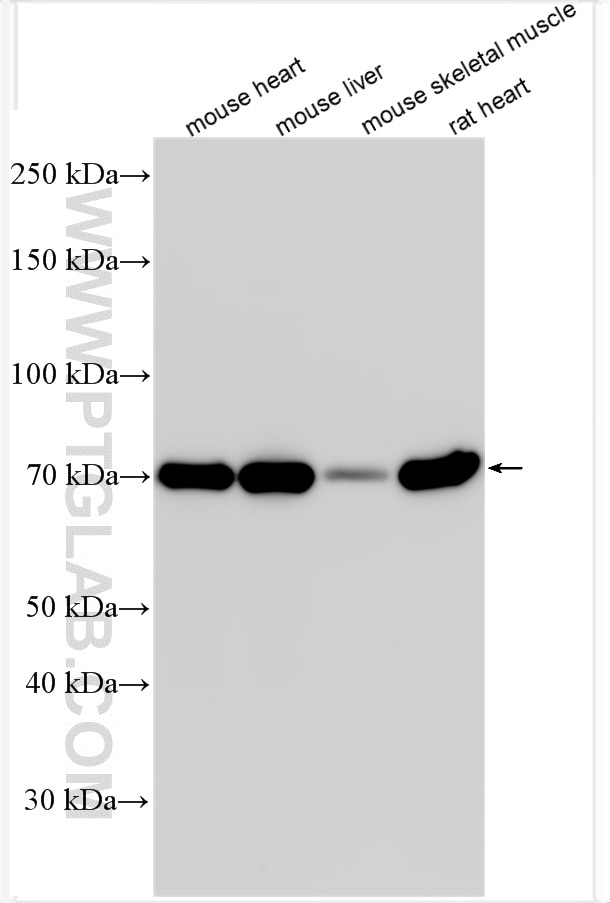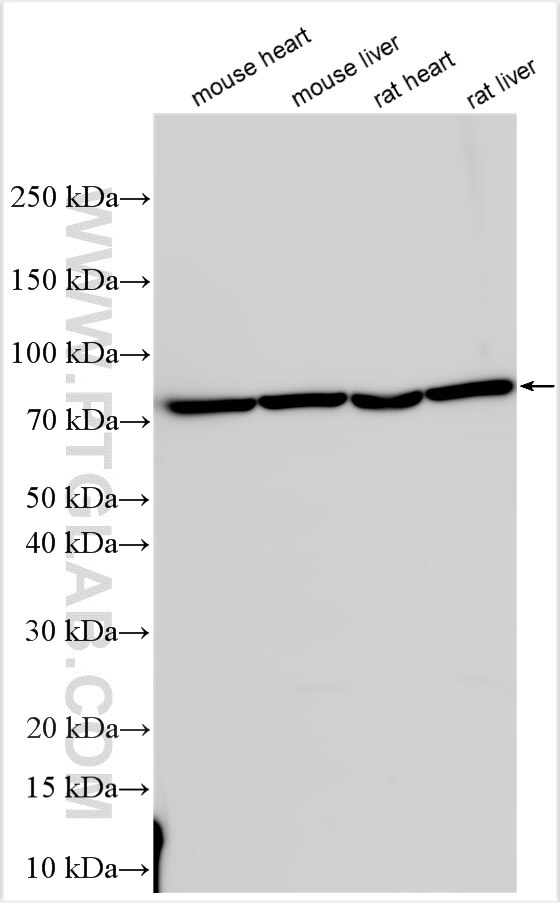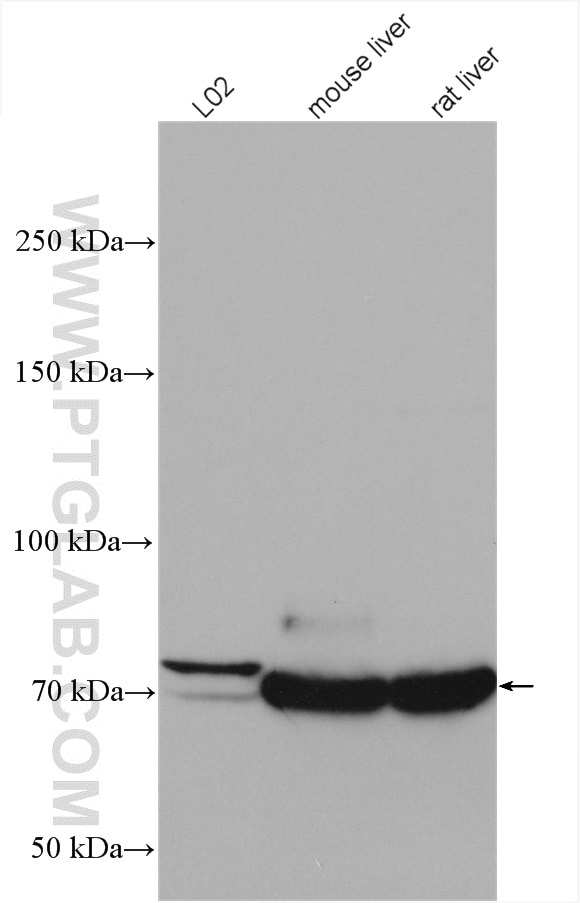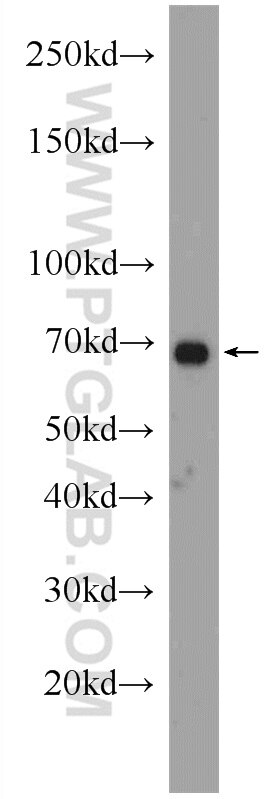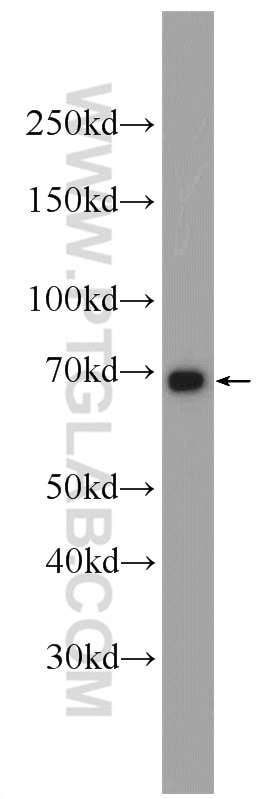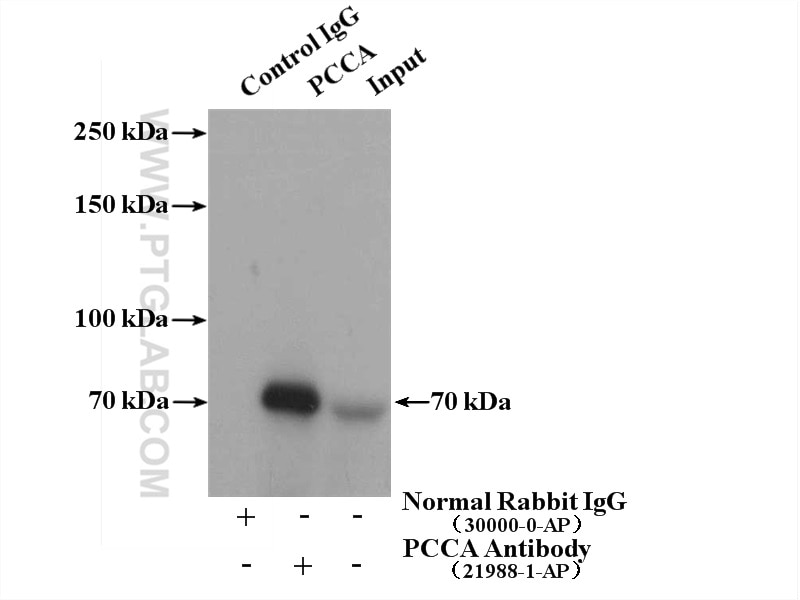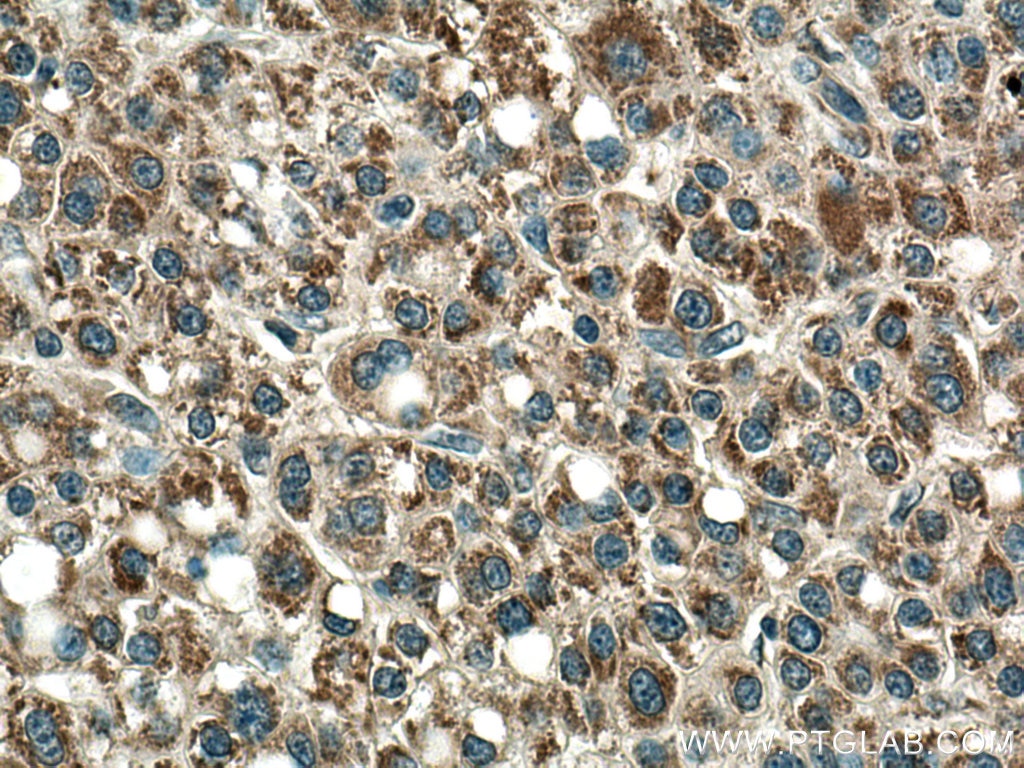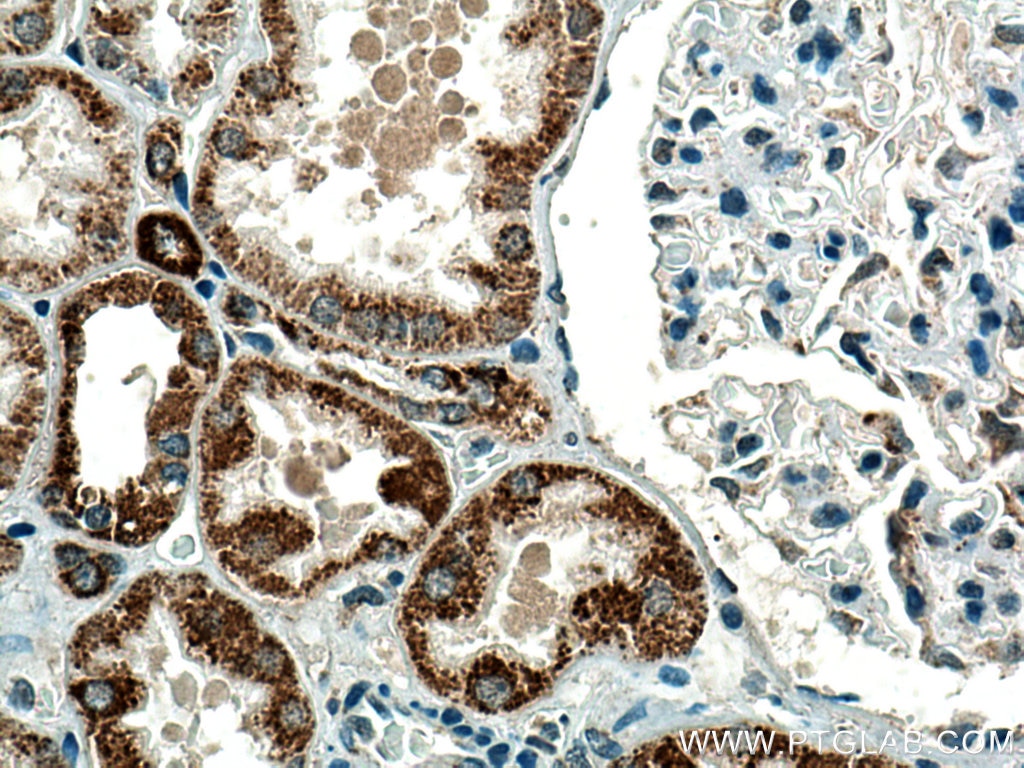Tested Applications
| Positive WB detected in | mouse heart tissue, L02 cells, NIH/3T3 cells, mouse liver tissue, rat liver tissue, mouse skeletal muscle tissue, rat heart tissue |
| Positive IP detected in | L02 cells |
| Positive IHC detected in | human liver cancer tissue, human kidney tissue Note: suggested antigen retrieval with TE buffer pH 9.0; (*) Alternatively, antigen retrieval may be performed with citrate buffer pH 6.0 |
Recommended dilution
| Application | Dilution |
|---|---|
| Western Blot (WB) | WB : 1:1000-1:8000 |
| Immunoprecipitation (IP) | IP : 0.5-4.0 ug for 1.0-3.0 mg of total protein lysate |
| Immunohistochemistry (IHC) | IHC : 1:50-1:500 |
| It is recommended that this reagent should be titrated in each testing system to obtain optimal results. | |
| Sample-dependent, Check data in validation data gallery. | |
Published Applications
| KD/KO | See 1 publications below |
| WB | See 8 publications below |
| IHC | See 2 publications below |
| IF | See 2 publications below |
| IP | See 1 publications below |
Product Information
21988-1-AP targets PCCA in WB, IHC, IF, IP, ELISA applications and shows reactivity with human, mouse, rat samples.
| Tested Reactivity | human, mouse, rat |
| Cited Reactivity | human, mouse |
| Host / Isotype | Rabbit / IgG |
| Class | Polyclonal |
| Type | Antibody |
| Immunogen |
CatNo: Ag17271 Product name: Recombinant human PCCA protein Source: e coli.-derived, PGEX-4T Tag: GST Domain: 344-703 aa of BC000140 Sequence: LVQEMIRVAKGYPLRHKQADIRINGWAVECRVYAEDPYKSFGLPSIGRLSQYQEPLHLPGVRVDSGIQPGSDISIYYDPMISKLITYGSDRTEALKRMADALDNYVIRGVTHNIALLREVIINSRFVKGDISTKFLSDVYPDGFKGHMLTKSEKNQLLAIASSLFVAFQLRAQHFQENSRMPVIKPDIANWELSVKLHDKVHTVVASNNGSVFSVEVDGSKLNVTSTWNLASPLLSVSVDGTQRTVQCLSREAGGNMSIQFLGTVYKVNILTRLAAELNKFMLEKVTEDTSSVLRSPMPGVVVAVSVKPGDAVAEGQEICVIEAMKMQNSMTAGKTGTVKSVHCQAGDTVGEGDLLVELE Predict reactive species |
| Full Name | propionyl Coenzyme A carboxylase, alpha polypeptide |
| Calculated Molecular Weight | 80 kDa |
| Observed Molecular Weight | 70 kDa |
| GenBank Accession Number | BC000140 |
| Gene Symbol | PCCA |
| Gene ID (NCBI) | 5095 |
| RRID | AB_2878963 |
| Conjugate | Unconjugated |
| Form | Liquid |
| Purification Method | Antigen affinity purification |
| UNIPROT ID | P05165 |
| Storage Buffer | PBS with 0.02% sodium azide and 50% glycerol, pH 7.3. |
| Storage Conditions | Store at -20°C. Stable for one year after shipment. Aliquoting is unnecessary for -20oC storage. 20ul sizes contain 0.1% BSA. |
Background Information
Propionyl-CoA carboxylase (PCC) catalyzes the biotin-dependent carboxylation of propionyl-CoA to D-methyl-malonyl CoA, a reaction that occurs in the mitochondrial matrix. PCC is involved in the catabolism of several essential amino acids (methionine, isoleucine, threonine and valine), as well as odd chain fatty acids and cholesterol. Deficiency of PCC results in propionic acidemia, a metabolic disorder characterized by severe metabolic ketoacidosis, vomiting, lethargy and hypotonia. PCC consists of nonidentical subunits (α and β) encoded by different genes (PCCA and PCCB, respectively). The αPCC cDNA contains an open reading frame of 2106 nucleotide bases and codes for a 702 amino acid polypeptide. The mature length subunit is 70 kDa and contains the biotin binding site.(PMID:8852656). This protein has 3 isoforms produced by alternative splicing with the molecular weight of 80 kDa, 77 kDa and 75 kDa. The full length protein has a transit peptide with 52 amino acids which will be removed in mature form. This antibody is specific to PCCA.
Protocols
| Product Specific Protocols | |
|---|---|
| IHC protocol for PCCA antibody 21988-1-AP | Download protocol |
| IP protocol for PCCA antibody 21988-1-AP | Download protocol |
| WB protocol for PCCA antibody 21988-1-AP | Download protocol |
| Standard Protocols | |
|---|---|
| Click here to view our Standard Protocols |
Publications
| Species | Application | Title |
|---|---|---|
Nat Commun Dual mRNA therapy restores metabolic function in long-term studies in mice with propionic acidemia. | ||
J Cell Biol CLUH regulates mitochondrial metabolism by controlling translation and decay of target mRNAs. | ||
Mol Genet Metab Metabolic perturbations mediated by propionyl-CoA accumulation in organs of mouse model of propionic acidemia. | ||
Hum Gene Ther Long-term Sex-Biased Correction of Circulating Propionic Acidemia Disease Markers by Adeno-Associated Virus Vectors. | ||
Hum Gene Ther Effects of Adeno-associated Virus Serotype and Tissue-specific Expression on Circulating Biomarkers of Propionic Acidemia. | ||
Biology (Basel) In Situ Peroxidase Labeling Followed by Mass-Spectrometry Reveals TIA1 Interactome. |

